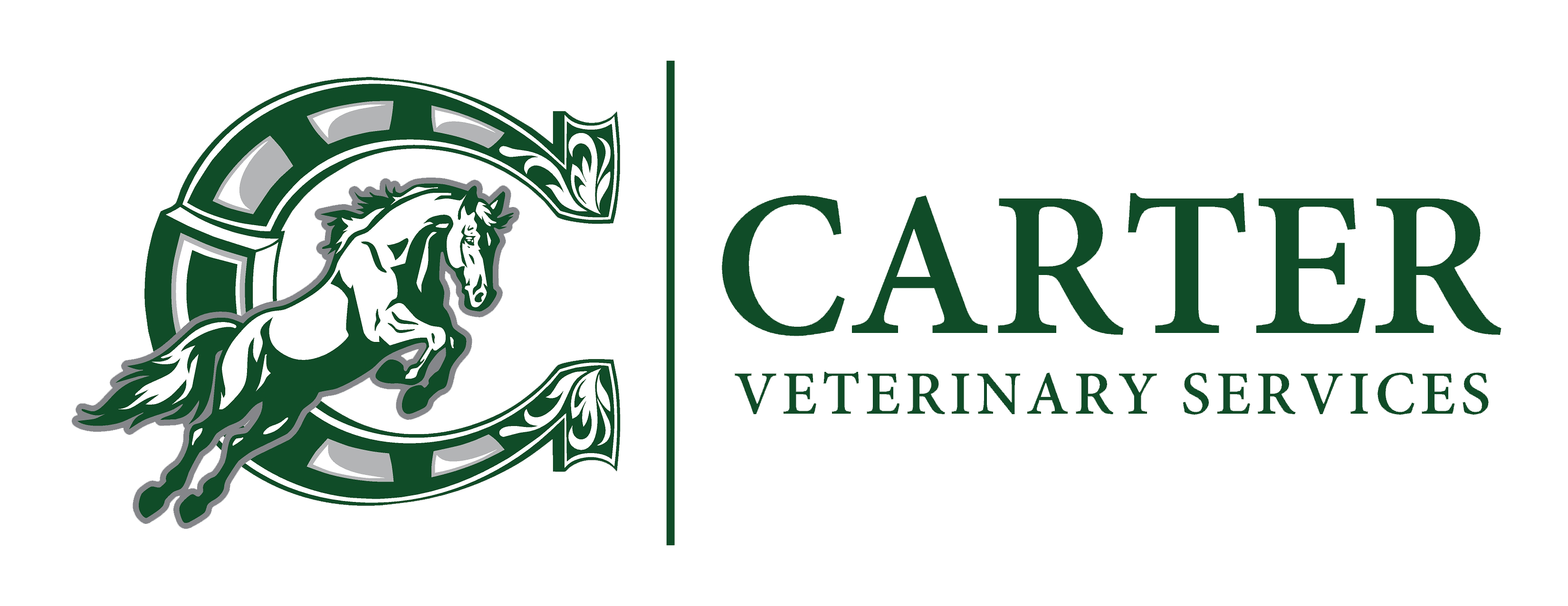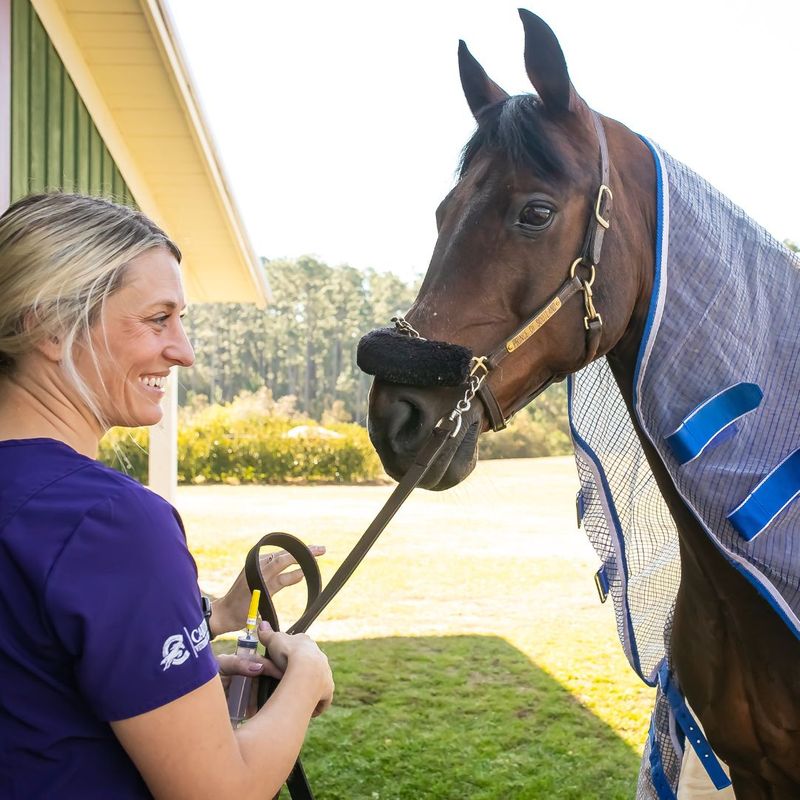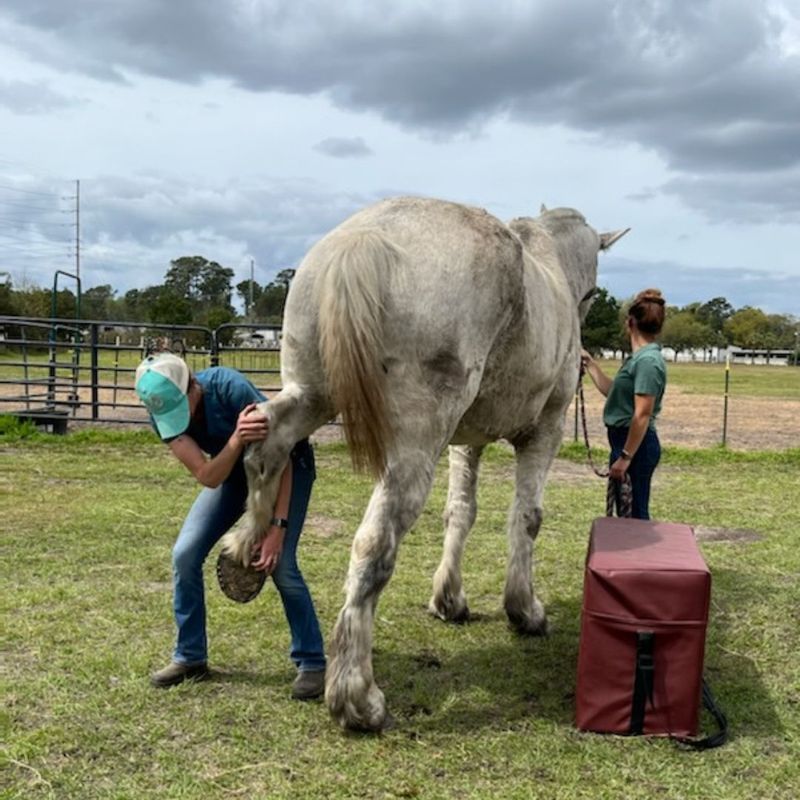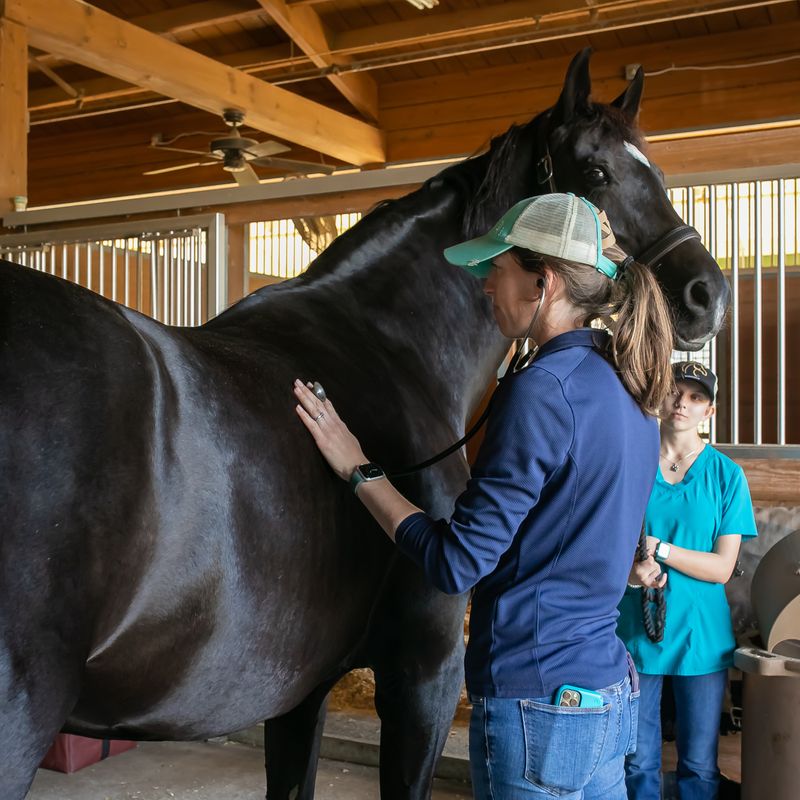The Lowcountry sees its fair share of rain. Here at Carter Veterinary Services, we prioritize the health and well-being of your horses, especially during the challenging rainy season. To ensure your equine companions remain safe and healthy, it's essential to be aware of certain conditions that can arise during this time. Here are some conditions to look out for and valuable tips on how to prevent and manage them. Schedule a consultation today.
Rainy Season Horse Care: Tips to Keeping Your Horses Safe and Healthy
Rainy Season Horse Care: Tips to Keeping Your Horses Safe and Healthy
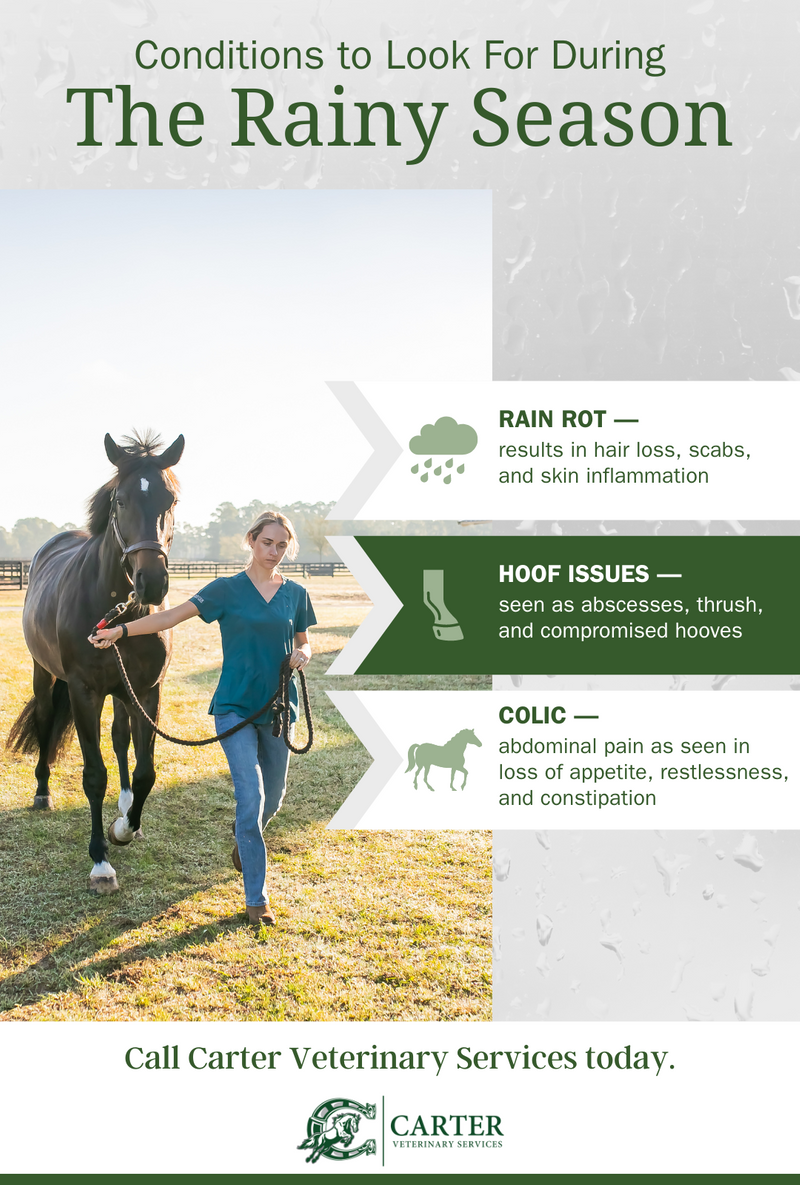
Prevention is Key
By proactively addressing these conditions and following these guidelines, you can significantly reduce the risk and impact on your horse's health during the rainy season. However, it's important to remember that prevention and early intervention are crucial. Regularly monitor your horses for any signs of discomfort or changes in behavior, and consult with one of our local horse veterinarians promptly if you notice any concerns.
Some Additional Tips
- Vaccinations and Deworming: Ensure that your horses' vaccinations and deworming protocols are up to date. Rainy seasons can increase the risk of certain diseases, such as respiratory infections and parasitic infestations. Consult with one of our local veterinarians to develop a tailored vaccination and deworming plan for your horses.
- Regular Veterinary Check-Ups: Schedule regular check-ups with our equine vets to proactively monitor your horses' health and address any concerns promptly. Regular dental examinations, vaccinations, and wellness exams are vital for maintaining their overall well-being.
CALL TODAY
At Carter Veterinary Services, we are committed to providing exceptional care for your horses throughout the Lowcountry. Our experienced team is well-versed in equine health and can provide personalized advice and equine veterinary services tailored to your horse's specific needs. Contact us today to schedule an appointment or consult with our knowledgeable staff. Together, we can keep your horses safe and healthy throughout the rainy season.
